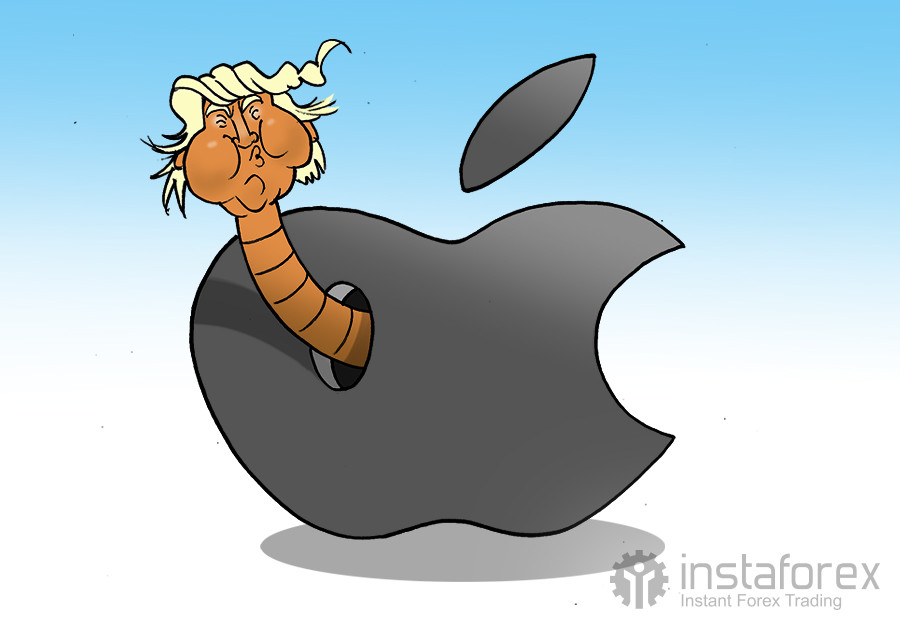
Apple avoids major troubles while Trump’s tariffs suspended
Apple has narrowly escaped serious troubles. The company’s supply chain, heavily reliant on China, was threatened by tariffs imposed by US President Donald Trump on Chinese goods. However, Apple has caught a break, though the question remains: for how long?
In light of the good news, Apple’s shares recorded a boost. On April 14, the company’s stock jumped by 4.9% amid a wave of optimism.
On April 11, the US president granted Apple a major concession by exempting a range of popular consumer products from tariffs, including the iPhone, iPad, Mac, Apple Watch, and AirTags. However, there is a strong likelihood of new tariffs targeting semiconductor-related products, as well as a potential 20% tariff on electronics imported from China. The timeline for these measures, though, remains uncertain.
In the meantime, Apple is enjoying a breather, but it is the wrong time for euphoria. According to US Commerce Secretary Howard Lutnick, smartphones and other currently exempted devices are expected to be included in a future semiconductor-focused tariff.
At this stage, the White House’s unexpected decision to waive certain tariffs is seen as a victory for both Apple and the broader consumer electronics industry. Importantly, this sector remains heavily dependent on Asian countries. “This tariff pause is very important for Apple. The imposition of duties could significantly increase costs,” Amit Daryanani, an analyst at Evercore ISI, notes.
Before the White House’s latest concession, Apple’s leadership had a contingency plan: restructuring its supply chains to ramp up iPhone production in India for the US market. Currently, Apple sells about 220–230 million iPhones annually, with roughly one-third of those sales in the United States. Mass production (approximately 30 million smartphones per year) is already possible thanks to operating factories in India.
Nowadays, the iPhone is Apple’s most profitable product. At present, nearly 87% of iPhones are manufactured in China. That figure is 80% for the iPad, and the share of the Mac is around 60%. Together, these products account for 75% of Apple’s annual revenue. Today, the company produces almost all of its Apple Watches and AirPods in Vietnam, along with some iPads and Macs.
However, the tariff challenge could change everything. Still, a complete break from China, which has served as Apple’s manufacturing facility for decades, seems unlikely. Relocating iPhone production to the United States would be extremely difficult due to a shortage of engineering and manufacturing workforce. This scenario is hardly feasible in the short term, the company concludes.

















